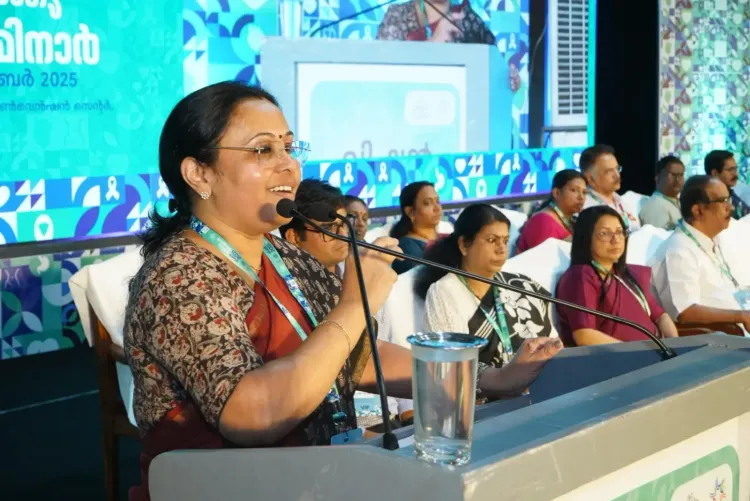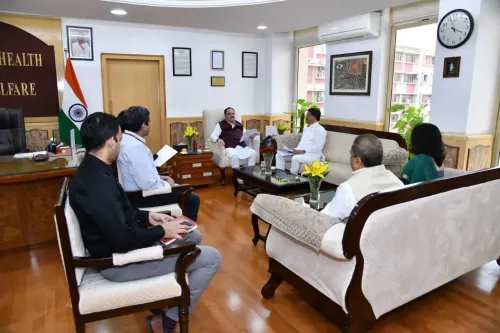Is Kerala on Track to Ensure Healthcare for All by 2031?

Synopsis
Key Takeaways
- Kerala's Goal: Universal healthcare coverage by 2031.
- Karunya Scheme: Covers 42.2 lakh families.
- Preventive Care: Initiatives like Healthy Life Campaign.
- Cancer Screening: Over 20 lakh screened under Anandam Akaram.
- Infectious Disease Focus: Strengthening epidemic intelligence.
Pathanamthitta, Oct 14 (NationPress) Kerala is striving to establish itself as a state that guarantees comprehensive healthcare for all citizens by the year 2031, as announced by State Health Minister Veena George during her presentation of the policy document titled “Vision 2031 - Health Sector of Kerala” at the Vision 2031 Health Seminar.
The minister elaborated on initiatives aimed at decentralizing specialty treatments, enhancing basic healthcare infrastructure, and improving trauma and emergency care, ensuring that health services are accessible to everyone across the state.
Currently, under the Karunya Health Security Scheme, which integrates various state programs, 42.2 lakh families are benefiting from healthcare coverage. This scheme offers up to Rs 5 lakh per family for medical treatment, while the Karunya Benevolent Fund continues to support those in need. The government plans to launch new initiatives to broaden coverage.
Another significant focus is on reducing lifestyle diseases. Initiatives such as the Healthy Life Campaign, the formation of 10,000 yoga clubs under the AYUSH department, and school health programs are being implemented to promote preventive care.
To facilitate early detection of lifestyle diseases, the state has initiated the Aardram Popular Campaign, which screens individuals over 30 years old in their homes, providing necessary treatment, as noted by the minister.
In terms of cancer prevention, the Health for Cancer Prevention – Anandam Akaram campaign has successfully screened over 20 lakh individuals, in conjunction with the establishment of modern cancer treatment facilities.
The prevention of infectious diseases is also a critical concern, particularly given emerging threats such as amoebic meningoencephalitis. Kerala is currently enhancing its epidemic intelligence system and formulating local micro-plans for effective prevention.
George stated that medical colleges in the state will be upgraded to fully operational tertiary care centers, aligning academic advancements with clinical improvements. She also mentioned that international research centers dedicated to Ayurveda are expected to contribute substantially to the field of traditional medicine.
The minister reiterated Kerala’s ambition to emerge as a health hub and highlighted the state’s leading role in combating antimicrobial resistance. She urged citizens to refrain from disseminating unscientific or misleading health information.
The seminar also highlighted achievements in the health sector over the past decade, presented by Additional Chief Secretary Dr. Rajan N. Khobragade.









